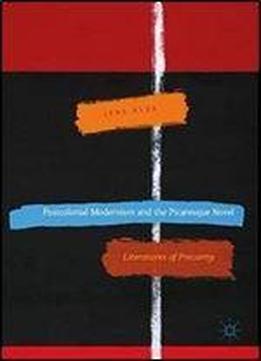
Postcolonial Modernism And The Picaresque Novel: Literatures Of Precarity
by Jens Elze /
2017 / English / PDF
3.8 MB Download
This book is about the contemporary picaresque novel. Despite its popularity, the picaresque, unlike the bildungsroman, is still an undertheorized genre, especially for the context of postcolonial literatures. This study considers the picaresque novel's traditional focus on poverty and deprivation, and argues that its postcolonial versions urge us to conceive of as a more wide-ranging sense of precarity and precariousness. Non-linear biography, episodic style, protean identities, unreliable narratives, and abject landscapes are the social and formal aspects through which this precarity is thematized and performed. A concise analysis of these concepts and phenomena in the picaresque provides the structure for this book. What is especially significant in comparison to other forms of postcolonial (post)modernism is that the picaresque does not offer a general critique of a project of modernity, but through its persistent precarity points to the paradoxical logics of capitalism, which are especially nuanced under the conditions of neo-imperialism and neoliberalism. The book features texts by established postcolonial authors such as Salman Rushdie and V.S. Naipaul, but especially focuses on the more recent proliferation of the genre in works by Aravind Adiga, Mohsin Hamid and Indra Sinha.











